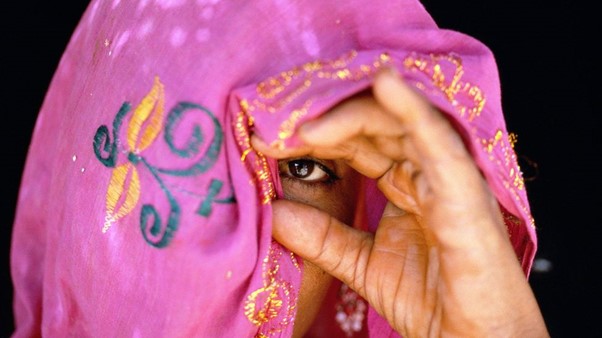I’ve always been fascinated by languages and accents from a young age.
Growing up in the 70s, our family life revolved around a big social circle of family and friends connecting us to our heritage. It was an education of etiquette, food, culture, traditions, colours and most importantly languages. I was born and bred in Liverpool and am a true scouser at heart; so, it’s added an extra style to the way I speak and use everyday language whether that’s in English or other dialects.
My parents kept heritage and culture alive through language. It was a big part of our childhood, conversing with older family members, uncles and aunts, grandparents and visitors allowing me to become bilingual/trilingual in various South Asian languages. I speak various dialects of Punjabi, Urdu, Hindi and can read Arabic, understand Mir Puri, and some Pashtun. It was always a fascinating, welcoming and fun learning curve in my family life growing up with my sisters. Which later in life intrigued me and made me think about how words have originated.
Words that have become part of our everyday English language such as loot, nirvana, pyjamas, shampoo, shawl, bungalow, jungle, pundit, and thug are just a few of the many words that originate from the days of the “old India”.
But what are the roots, and routes, of these Indian words? How and when did they travel into the British dialect and then end up into the Oxford English Dictionary? It makes us think a bit more about the relationship between Britain and India.
Long before the British Raj and before the East India Company acquired its first territory in the Indian subcontinent in 1615, South Asian words from languages such as Hindi, Urdu, Malayalam, and Tamil had crept into people’s languages. One landmark book that records the history of spoken Anglo-Indian words and phrases, compiled by two India enthusiasts, Henry Yule, and Arthur C Burnell, called ‘A Glossary of Colloquial Anglo–Indian Words and Phrases’ published in 1886 talks a lot about how language has evolved.
I came across the new modern paperback edition which provides us with new sources of how many of the words pre-date British rule. For example, ginger, pepper, and indigo entered the English language via trade routes. The author states, “these reflect the early Greek and Roman trade with India which then came through Greek and Latin and into English.”
The word ginger comes from Malayalam in Kerala and originates back to Greek and Latin and even further back to old French and old English.
I also learned that as global trade increased through Europe, the movement of Indian words into English gathered pace. Many words came via the Portuguese. The Portuguese conquest of Goa, India dates to the 16th Century, and words like mango, and curry, came to us via the Portuguese.
The word ‘mango’ began as ‘mangai’ in Malayalam and Tamil and entered Portuguese as ‘manga’ which then entered the English language with an ‘o’ ending,” to produce the word, Mango.
Our everyday language and the words we use
Some of the words that we use and say in our everyday language originate from Hindi, Urdu, Tamil, Malayalam, and Portuguese and have migrated around the world. This demonstrates how language evolves over time. As culture changes, language is adapted to shape new words.
For example, words such as shawl, cashmere, and patchouli have travelled together from India into 18th-Century English.
Cashmere is what we associate with wool and its origins are in Kashmir and the wool produced by Kashmir goats. It is also associated with a shawl, a word which originates in Persia. This word travelled into India via Urdu and Hindi languages and then within the British Raj it became a word we use in our English language.
Here are some of my favourite words
Blighty – This is a good example of how language is constantly evolving. It’s usually used by older generations, wartime eras, and expat Brits referring to Britain and the homeland as in ‘Good ol’ Blighty’ but it comes from the Urdu word for foreigner or European, ‘Vilayati’.
Tickety boo – Which originally was a sentence “Teek heh babu” meaning “Yes sir” or referencing it to something one understood when asked a question. We still use it today as an indication of everything is ok.
Doo- lally – Doolally comes from the town “Deolali”, which was the location of an army base and sanatorium where soldiers leaving India in the late 19th century were sent before leaving for home. People were said to have gone Doolally. Which we often refer today as a word for a person who may have altered mental health.
Old India’s influence on the English language is constantly in action and evolving as some words we used once may not be politically correct now or have faded out in our new age era. It highlights, however, the importance of language in former colonies and the attributes it has given in the making of the modern world. I do find it fascinating to look at words. It opens our minds to the paths of how words have travelled, and their unlikely connections.

